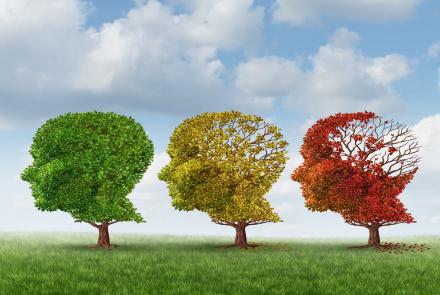As a family caregiver of a loved one who is ill, you are juggling multiple jobs. You are nurse, counsellor, dietitian, secretary, friend and emotional anchor – all rolled into one.
However sincere you are about your responsibilities, the stress can mount up quickly and cascade onto the lives of others in the household. How do you keep your patient well and happy and keep yourself and your family calm and happy, too?
The Caregiver’s Guidebook brings you ideas to help…
Latest Stories
- Managing the condition Dementia generally gets worse with age but the development of symptoms can often be slowed with drugs or other treatments. Treatment of dementia usually aims to improve memory and concentration, reduce psychiatric problems, and improve the quality of life for both the patient and their family. Read here for various treatment options: http://www.patientsengage.com/conditions/dementia/treatments Improving quality of life: There are several psychological techniques to…
- Dementia generally gets worse with age but the development of symptoms can often be slowed with drugs or other treatments. Treatment of dementia usually aims to improve memory and concentration, reduce psychiatric problems, and improve the quality of life for both the patient and their family. Improving memory and concentration: The memory difficulties seen in Alzheimer's disease can be relieved for a short time in some people with drugs that prevent the breakdown of acetylcholine in the brain…
- Managing the following may help: Cardiovascular risk factors: Your brain is nourished by one of your body's richest networks of blood vessels. Anything that damages blood vessels anywhere in your body can damage blood vessels in your brain, depriving brain cells of vital food and oxygen. Blood vessel changes in the brain are linked to vascular dementia. These are often present along with changes caused by other types of dementia, including Alzheimer's disease and dementia with Lewy bodies…
- Different types of Dementia • Alzheimer’s disease: This is the most common type of dementia and is marked by protein deposits in the brain and nerve cell damage. • Vascular (or blood vessel) dementia: This is a type of dementia that is caused by disease or injury to blood vessels in the brain. • Lewy body dementia (DLB): This is a dementia that has the primary symptoms of visual hallucinations. • Frontotemporal dementia (FTD): This is a dementia that is characterised by drastic…
- What tests do you need to do to assess if a person has Dementia: Mini mental state examination (MMSE): This is a brief 30-point questionnaire test. It takes about 10 minutes and examines functions including arithmetic, memory and orientation. Abbreviated mental test score (AMTS): This was introduced in 1972 to rapidly assess elderly patients for the possibility of dementia. Modified Mini-Mental State Examination (3MS) Cognitive Abilities Screening Instrument (CASI) Informant…
- The most common symptoms of Dementia are: • Memory loss, especially of more recent events • Hallucinations and delusions • Confusion • Balance problems • Loss of bladder or bowel control • Sleep disturbances, including insomnia and acting out dreams — physically moving limbs, sleep talking, screaming, hitting or even getting up and engaging in daytime activities. • Difficulty finding their way around, especially in new or unfamiliar surroundings • Problems finding the correct words…
- What causes Dementia The most common cause is Alzheimer's disease, which accounts for up to 60% of all cases. Alzheimer's disease is caused by the destruction of certain brain cells leading to the loss of the neurotransmitter acetylcholine. Vascular dementia, which occurs after a stroke, is the second most common dementia type. But there are many other conditions that can cause symptoms of dementia, such as thyroid problems and vitamin B complex deficiencies. Dementia can also be caused by…
- Ekta Hattangady became her mother’s primary caregiver when she was 13. Her mother had Early Onset Alzheimer’s at age 43. Hindsight is always 20-20. I was an Alzheimer’s caregiver between 18-15 years ago. The world was a different place then. The internet was not as big as it is today and nor was Alzheimer’s a household name. Not in India, anyway. As time has passed, my work with families and people with dementia has increased and my level of knowledge about the disease has grown…















